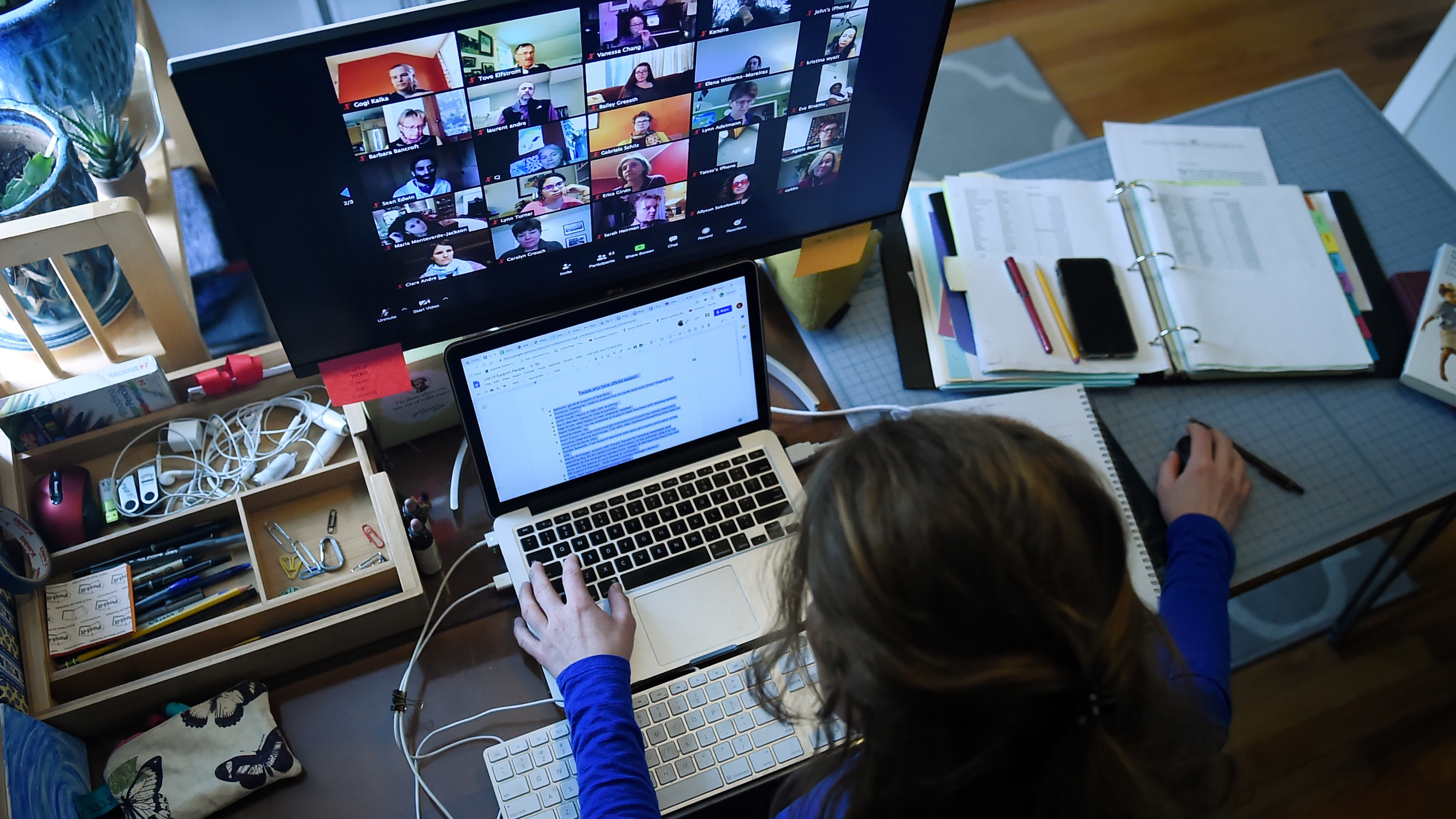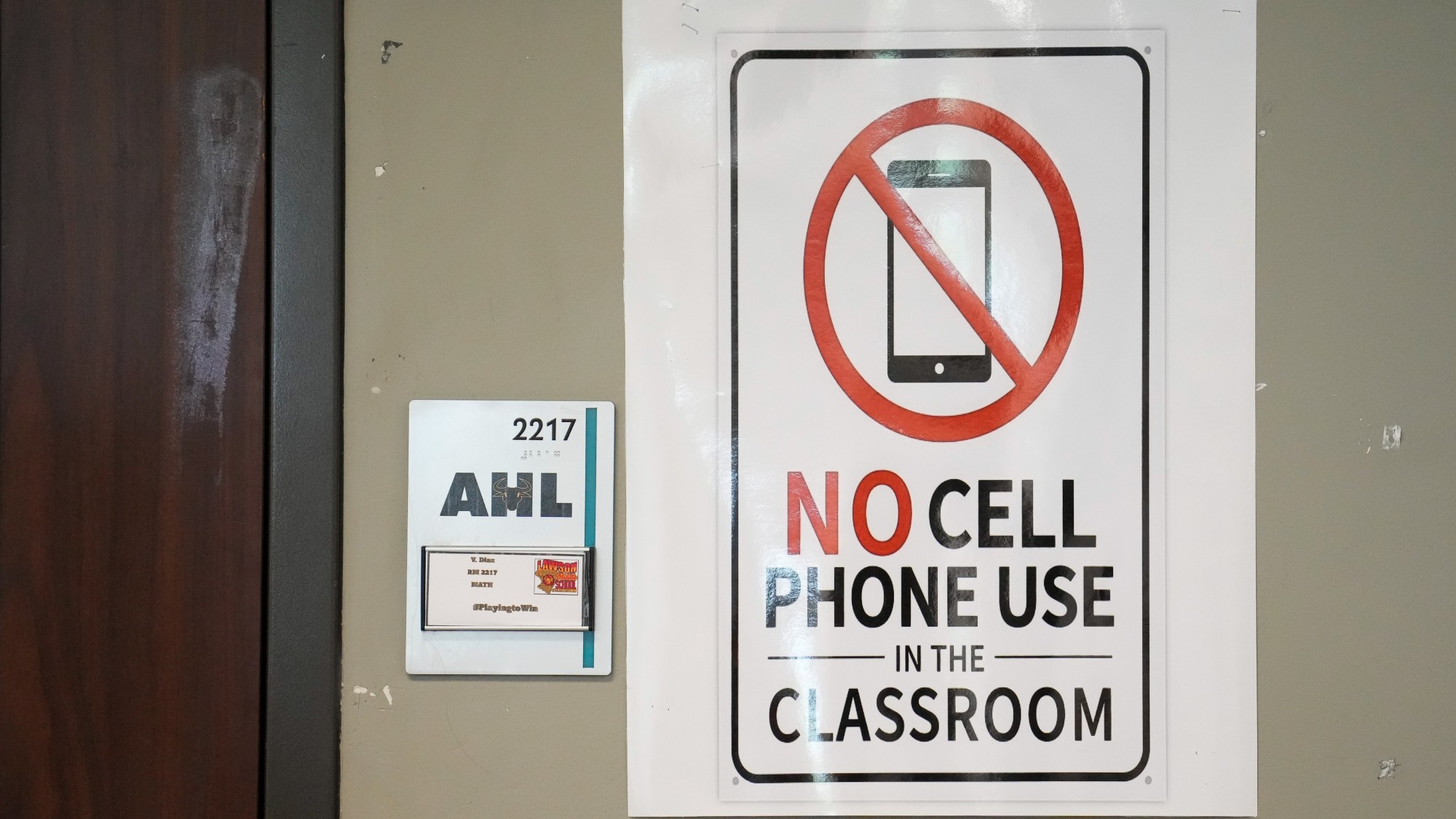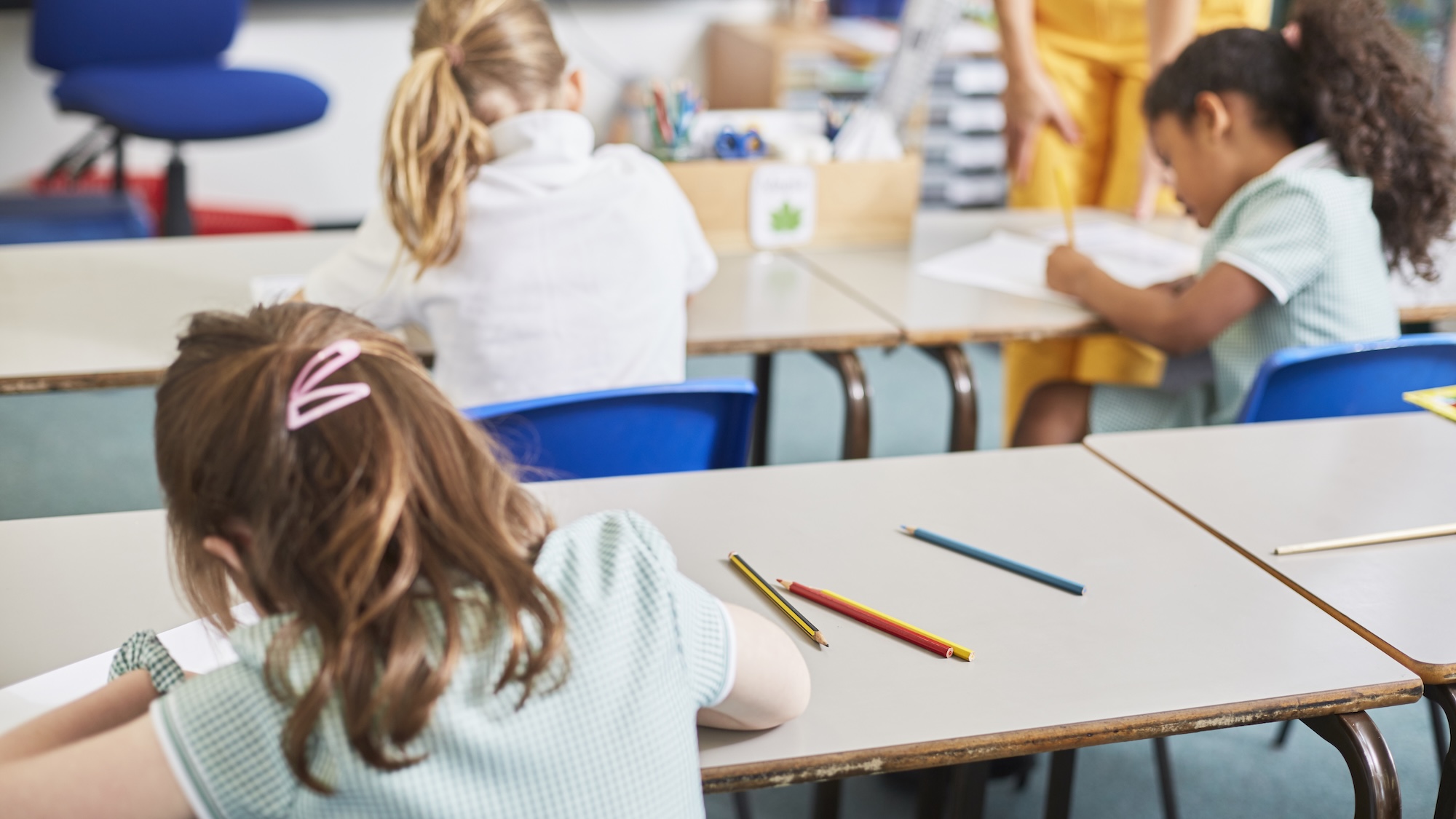School closures: the inequality problem
The coronavirus pandemic will have a lasting impact on children in the UK and around the world

A free daily email with the biggest news stories of the day – and the best features from TheWeek.com
You are now subscribed
Your newsletter sign-up was successful
The closure of schools is likely to widen the education gap between children in the north and south of England, MPs will warn the education secretary today.
In an open letter to Gavin Williamson, more than 50 MPs and peers from the North have called for urgent action to prevent the poorest pupils falling behind because of the coronavirus lockdown.
Sky News reports that two-thirds of secondary schools teaching the most disadvantaged communities are in the north of England, according to new figures.
The Week
Escape your echo chamber. Get the facts behind the news, plus analysis from multiple perspectives.

Sign up for The Week's Free Newsletters
From our morning news briefing to a weekly Good News Newsletter, get the best of The Week delivered directly to your inbox.
From our morning news briefing to a weekly Good News Newsletter, get the best of The Week delivered directly to your inbox.
The letter follows calls by Conservative MP Robert Halfon, chairman of the Commons Education Select Committee, for a “catch-up premium” to help vulnerable and disadvantaged pupils when schools reopen, the BBC reports.
What are the MPs demanding?
In the letter to Williamson, the MPs have called for a catch-up premium of at least £300m – equating to £700 for every pupil on free school meals. This, they say, would fund 30 minutes of tuition three times a week for up to 12 weeks.
The letter said: “The most disadvantaged children fall behind their peers over a long summer holiday, and the shutdown will widen the North’s disadvantage gap and with it the North-South education divide.
A free daily email with the biggest news stories of the day – and the best features from TheWeek.com
“We need to deal with the consequences of this crisis for the most vulnerable in our society, and that must include children from low-income households.”
Sky News notes that signatories to the letter include Lord Jim O’Neill, who served as a Treasury minister under David Cameron, and some newly elected Tories in former “red wall” Labour seats.
According to Tes, Halfon had originally said that a per-pupil funding model was needed as research suggests disadvantaged pupils are “adversely affected” by school closures. He also added that he feared the lockdown would “sap their progress” compared with that of their better-off classmates.
A Department for Education spokesperson said that the government has committed over £100m to support remote education, including providing devices and internet access.
The spokesperson added that schools are also continuing to receive additional funding in the form of the pupil premium – worth around £2.4bn per year – to support disadvantaged pupils.
“We will do everything possible to make sure no child, whatever their background, falls behind as a result of coronavirus,” the spokesperson said. “The department is considering, with a range of partner organisations, how best to support all pupils to make up for time out of school.”
Is there an inequality issue in the UK?
The letter from MPs to the education secretary cites research by the Northern Powerhouse Partnership that says pupils in the North are most likely to be from the economic and ethnic groups who make the slowest progress at secondary school.
Sky News says official figures show that, despite some schools remaining open to teach the children of key workers and those who are most vulnerable, attendance was under 2% of all students.
The broadcaster adds that accessing online lessons has also revealed an economic divide among children, with headteachers saying that in some schools up to 40% of their pupils live in a home with no computer.
“Closures in Britain could increase the gap in school performance between kids on school meals (a proxy for economic disadvantage) and those not on school meals,” The Economist adds.
Becky Francis, CEO of the Education Endowment Foundation, told the newspaper that over the past 10 years the gap between rich and poor students, measured by grades in tests, has narrowed by roughly 10%.
“But she thinks school closures could, at the very least, reverse this progress,” the newspaper reports.
–––––––––––––––––––––––––––––––For a round-up of the most important stories from around the world - and a concise, refreshing and balanced take on the week’s news agenda - try The Week magazine. Start your trial subscription today –––––––––––––––––––––––––––––––
Is this an international issue?
Around the world, 90% of students have been impacted by school closures linked to the coronavirus pandemic, according to UNESCO, a UN agency.
“Some countries are better placed than others to withstand such pressures,” The Economist says. “The scale of pre-existing inequalities will be especially important.”
In places such as Denmark, Slovenia and Sweden, the paper notes, 95% of 15-year-olds have access to a computer at home, regardless of their family background. However, in America that is true for “virtually all students in the wealthiest quartile but only three in four of those in the poorest”.
Some countries have also adapted their closure policy to ensure that students do not miss out on vital schooling. Finland, for example, started distance learning only when it was clear that almost every child would be able to take part.
The divide between pupils in the UK is outlined by Laura Nellums, assistant professor in global health at the University of Nottingham, and Richard Armitage, lecturer in clinical skills and early clinical professional development at the same university, in The Lancet.
They write: “School closures impede learning and compound inequalities, disproportionately affecting disadvantaged children.
“Access to distance learning through digital technologies is highly unequal, and subsidised meal programmes, vaccination clinics, and school nurses are essential to child health care, especially for marginalised communities.”
As the Economist notes, there is also precedent for the impact of epidemic-triggered school closures on children. “West Africans readily recall the devastation caused by longer shutdowns,” the paper reports.
“Today’s older schoolchildren will still remember how prolonged school closures during the Ebola outbreak in 2014 led to an increase in unplanned teen pregnancies and in related school dropouts.”
The World Food Programme (WFP) and UNICEF have urged national governments to prevent negative health consequences of the closures by ensuring that children do not miss out on school meals.
“For millions of children around the world, the meal they get at school is the only meal they get in a day. Without it, they go hungry, they risk falling sick, dropping out of school and losing their best chance of escaping poverty,” said WFP executive director David Beasley.
“We must act now to prevent the health pandemic from becoming a hunger catastrophe.”
-
 Nuuk becomes ground zero for Greenland’s diplomatic straits
Nuuk becomes ground zero for Greenland’s diplomatic straitsIN THE SPOTLIGHT A flurry of new consular activity in the remote Danish protectorate shows how important Greenland has become to Europeans’ anxiety about American imperialism
-
 ‘This is something that happens all too often’
‘This is something that happens all too often’Instant Opinion Opinion, comment and editorials of the day
-
 House votes to end Trump’s Canada tariffs
House votes to end Trump’s Canada tariffsSpeed Read Six Republicans joined with Democrats to repeal the president’s tariffs
-
 The pros and cons of banning cellphones in classrooms
The pros and cons of banning cellphones in classroomsPros and cons The devices could be major distractions
-
 School phone bans: Why they're spreading
School phone bans: Why they're spreadingFeature 17 states are imposing all-day phone bans in schools
-
 Schools: The return of a dreaded fitness test
Schools: The return of a dreaded fitness testFeature Donald Trump is bringing the Presidential Fitness Test back to classrooms nationwide
-
 Send reforms: government's battle over special educational needs
Send reforms: government's battle over special educational needsThe Explainer Current system in 'crisis' but parents fear overhaul will leave many young people behind
-
 Education: Can public schools be religious?
Education: Can public schools be religious?Feature A Supreme Court seems ready to rule in favor of religious charter schools in Oklahoma, which could reshape public education
-
 America's academic brain drain has begun
America's academic brain drain has begunIN THE SPOTLIGHT As the Trump administration targets universities and teachers, educators are eying greener academic pastures elsewhere — and other nations are starting to take notice
-
 Schools' Send crisis: how can it be fixed?
Schools' Send crisis: how can it be fixed?Today's Big Question Government urged to reform support for children with special educational needs and disabilities and save councils from bankruptcy
-
 Unschooling: the radical education trend raising eyebrows
Unschooling: the radical education trend raising eyebrowsUnder the radar Some parents are letting their children lead their education